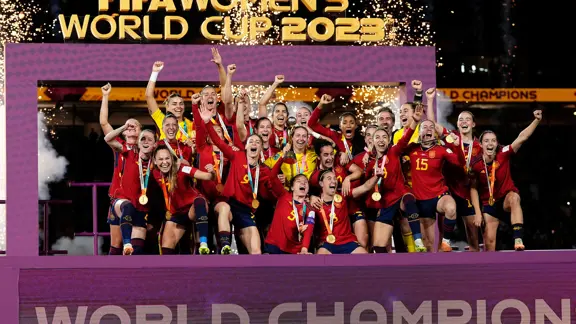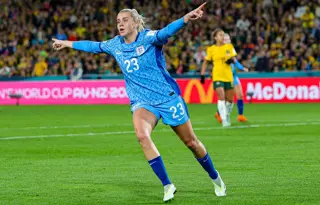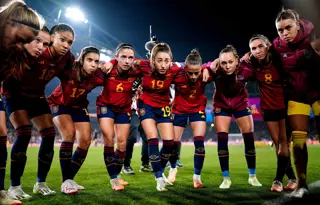News
Women’s World Cup player survey highlights issues in areas including preparation, recovery and compensation

- FIFPRO surveyed Women's World Cup players from 26 of the 32 national teams about the tournament
- Two-thirds believed they were not at their physical peak at the start of the competition, highlighting ongoing issues with the international match calendar and player preparation
- One in three earns less than $30,000 a year from football, and one in five supplements their income with a second job
The results of a wide-ranging survey of 260 footballers who participated at the FIFA Women’s World Cup underscore the need for further player-centric improvements in international women’s football in key areas including the match calendar, medical support, and compensation.
FIFPRO surveyed players from 26 of the 32 national teams about the tournament in Australia and New Zealand that took place in July and August. The findings show 53 percent of players felt they did not have enough rest before their first World Cup match. Two-thirds believed they were not at their physical peak at the start of the tournament, highlighting ongoing issues with the international match calendar and player preparation.
Furthermore, most players said they had insufficient recovery time after the World Cup: 60 percent felt their post-tournament rest was insufficient, with 86 percent having less than two weeks of rest before rejoining their club. FIFPRO guidelines recommend an off-season break of four weeks, with a re-training period of six weeks.

“I was trying to rest and prepare at the same time, which doesn’t really work,” one player commented. Another said it was “mentally exhausting” to go from the World Cup to club football without enough recovery time.
Although the World Cup broke records in terms of television audience and match attendances, the survey findings show many players still lack adequate financial compensation: one in three earns less than $30,000 a year from football, and one in five supplements their income with a second job.
“The players gave everything they had to put on a brilliant World Cup, but there are still important gaps that need addressing,’’ said FIFPRO Director of Policy and Strategic Relations for Women’s Football Sarah Gregorius. “We will be seeking to work through these issues with stakeholders and resolve them as soon as possible.”
The annual pay cited by players includes income from national team and clubs but does not include their guaranteed minimum share of 30 percent of World Cup prize money.
This share, which guaranteed each player at least $30,000 before tax, was an important precedent to establish that players have the right to receive prize money based on their performances on the field at major tournaments.

Before the tournament began FIFPRO also negotiated equal conditions on everything from transport to accommodation and delegation size. The survey found that 94 percent of players flew business class to the tournament, although this dropped to 80 percent for the return flight after the World Cup.
While the maximum delegation size was raised to 50 for the World Cup, some players voiced concerns about the standard of the technical staff in their national team’s delegation – with one player calling for an investigation into the qualification of technical staff brought by their federation.
Ten percent of players did not have a pre-tournament medical examination and, in a worrying statistic, 22 percent did not have an electrocardiogram (ECG), both of which are part of FIFA tournament regulations. Sixty percent of players said they lacked mental health support.
“Anything below 100 percent when it comes to access to an ECG or undertaking a pre-tournament medical is not acceptable,” said FIFPRO Head of Strategy & Research for Women’s Football Dr Alex Culvin. “All players need to complete these important checks before they compete, and the regulations need to be applied and adhered to in full.
“Players need an environment that supports their holistic wellbeing – from mental health through to tournament conditions, so they have the platform to be at their competitive best."
Women's World Cup Player Survey

